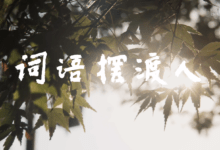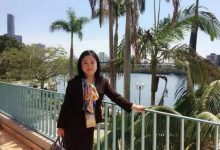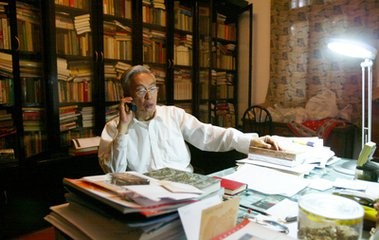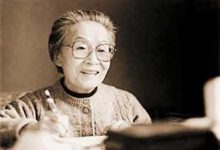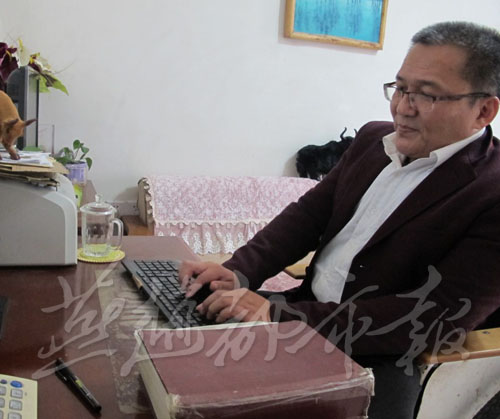《墨子》英译对比研究
王宏
(苏州大学外国语学院,江苏苏州215006)
摘要: 本文通过对墨子现有英译本的比读分析,论证《墨子》英译全译本问世的必要性及特点,探讨文本考辨在典籍英译中的重要作用以及典籍英译所应遵循的基本原则。笔者认为,1)典籍作品的文本考辨事关译文的准确,必须高度重视; 2)“明白、通畅、简洁”应为翻译《墨子》一类古籍作品所应遵循的基本原则。
关键词:墨子;英译;比读;文本考辨;典籍翻译原则
A Comparative Study of the Translation of Mozi
WANG Hong
(School of Foreign Languages, Suzhou University, Suzhou,Jiangsu Prov., 215006, China)
Abstract: Through a comparative study of the English versions of Mozi, this author argues that (1) great importance should be attached to textual research as it concerns the accuracy of the translation of Chinese Classics; (2) “clarity, smoothness and conciseness” should be taken as the basic principles for translating Chinese classics such as Mozi.
Key words: Mozi; English versions; comparative study; textual research; basic principles for translating Chinese classics
0、引言
墨子,名翟,生于公元前约468年,卒于公元前约376年,是春秋战国时期著名的思想家、政治家、教育家、军事家及科学家,墨家学派的创始人。在代表新兴地主阶级利益的法家崛起以前,墨家是先秦时期和儒家相对立的最大学派,曾与儒学并列为“世之显学”。墨子的著作在西汉时由刘向整理成书,共71 章,但六朝以后有所流失,现存的《墨子》只有53章。现已出版的《墨子》英译本有两种: 一是梅贻宝(Y. P. Mei ) 的译本(以下简称“梅译本”) ,二是伯顿?沃森(Burton Watson) 的译本(以下简称“沃译本”) 。梅译本的英文全称是: The Ethical and Political Works of Motse(《墨子的伦理及政治论著》) 。梅贻宝是天津人,1922年毕业于清华大学,1923 年赴美国哥伦比亚大学专门从事墨子研究,1927年获得博士学位。梅的博士论文题目为Motse,the Neglected Rival of Confucius (《墨子: 一位曾与孔子匹敌而后备受冷落的人》) ,其译著是他博士论文的副产品。梅贻宝是将《墨子》译成英语并在西方出版发行的第一人。西方哲学界对梅译《墨子》的评论是:“尽管译自上个世纪20年代,梅对墨学作品的翻译仍是研究古代中国(哲学思想) 的标准资源。”《墨子》的另一个英译本出自哥伦比亚大学教授伯顿?沃森(Burton Watson) 之手。沃森为中国古典哲学和文学专家。他的译本取名为Basic Writings of Mo Tzu(《墨子选译》) ,于1963年由美国哥伦比亚大学出版社出版。西方评论界认为他的译文“不但忠实于原文,而且具有很高的可读性和欣赏价值”。我们的译本取名为The English Version of The Complete Works of Mozi (《<墨子>英译全译本》) ,历时两年半完成。该书被列入国家新闻出版总署的重大出版工程“大中华文库”出版计划,由湖南人民出版社出版。
本文试图通过对《墨子》现有英译本的比读分析,论证《墨子》英译全译本的必要性及特点,探讨典籍英译所应遵循的基本原则以及文本考辨在典籍英译中的重要作用。
1、《墨子》英译全译本的必要性及特点
与《老子》、《庄子》、《孟子》、《荀子》等中国重要典籍作品相比,《墨子》一直缺少一部英译全译本,因而海外读者对博大精深的墨学一直未能见其全貌。梅先生只选译了现存墨子53章中的36章。沃森的译本更不能全面反映墨子的思想,他只选译了现存《墨子》53章中的14章。因此,尽早让海外读者读到墨子的英译全译本,让被称为“绝学”的墨学全貌被世界上更多的人认识,是中国学者义不容辞的任务。其次,梅译和沃译的出版年代已经久远,距今已相隔少则40年,多则近80年,无论是在语言转换,还是在内容表达方面都有必要根据当今读者的需求重新规范,与时俱进。而两个译本中出现的误译、漏译等更是急需进行修正。第三,在近几十年中,我国学术界对《墨子》的考证和研究取得了长足进步,这些最新的研究成果为翻译《墨子》全书提供了许多有利条件,因此有必要利用这些最新的研究成果重译《墨子》,使其以全新的面貌呈现在新世纪读者面前。比如,《墨子》第二章“修身” (中) 有这样一句话: “是故君子力事日强,愿欲日逾① ,设壮日盛。”梅先生的译文是: “Therefore the superior men are daily more energetic in performing their duty, but weaker in their desires, and more stately in their appearance. ” 当年梅先生参考的版本是晚清学者孙诒让校勘的《墨子闲诂》,而根据2000 年出版的《墨子直解》的解释,“愿欲日逾”应为“愿欲远大”之意,因此我们的译文也做了相应修订: ” Therefore, the gentleman will gain more strength, cherish greater expectations and display better conduct with each passing day. ” 再如,梅译本和沃译本对《墨子?非攻(下) 》有这样一句话: “偏具此物,而致从事焉,则是国家失卒,而百姓易务也。”这里的国家“失卒”分别被译为“lose its fighting men ” (沃译) 和“lose its men ” (梅译) ,而当今现代汉语译本对“国家失卒”的解释均为“国家失去法度”(孙以楷、甄长松,2000:69;吴龙辉等,1992:102)。因此,我们采纳了最新研究成果,将这段话译为: ” If all the unfavorable conditions exist, the war is still launched by all means, then the state will fall in to disorder and the common people will be forced to abandon their occupations. ”
就《墨子》英译全译本的特点而言,我们经过认真仔细的文本考辨,纠正了梅译本和沃译本的误译、漏译。比如:
(1) “汤放桀于大水,环天下自立以为王。”(《墨子?三辩》) ②
梅译: Tang sent Jie to exile on the ocean and installed himself ruler of the empire.
经考证,梅的这个译文有错。他在译“大水”一词时未经认真辨析,误将“大水”一词译为“ocean”。根据2000 年浙江文艺出版社《墨子直解》的解释: “大水,地名,所在不详。”显然,“大水”指的是地名。我们的译文是:” Having exiled Jie to a place called Dashui, Tangmade himself ruler of the empire. “③
(2) “昔者楚灵王好士细要,故灵王之臣,皆以一饭为节,胁息然后带,扶墙然后起。”(《墨子?兼爱<中>》)
梅译: And Lord Ling of the state of Chu (about 535 B1C.) liked slender waists. And so all his ministers and officers limited themselves to a single meal (a day). They tied their belts after exhaling, and could not stand up without leaning against the wall.
这句话里的“胁息然后带”有可能产生歧义。“胁息”究竟指“吐气” (exhale /breathe out) 还是“吸气” (inhale /breathe in) ,各家解释也不一致。《墨子直解》的解释是: “吐出气以紧缩腰腹”,孙诒让的《墨子闲诂》对“胁息”一词没有解释,《墨子白话今译》和《墨子全译》提供的现代汉语译文分别为“收着气然后才系上腰带”和“胁下吸气(收腹) ,然后用腰带束紧”。我们带着疑问查阅了1998年商务印书馆出版的《古代汉语词典》,得到的解释是“敛气,屏息”。显然,《古代汉语词典》的解释是正确的。只有先吸气才能收腹,这其实是一个常识问题。据此,我们的译文是:” In the past, Lord L ing of the state of Chu preferred that the elite gentlemen have slender waists. So all his ministers ate only just one meal a day and would in hale and contract their bellies before they tied their girdles. ”
(3) “昔者晋文公好士之恶衣,故文公之臣,,皆: 羊之裘,韦以带剑,练帛之冠,入以见于君,出以践于朝。”(《墨子?兼爱<中>》)
梅译: Formerly, Lord Wen of the state of Jin (about 630 B1C.) liked the uncouth uniform of the soldier. And so all his ministers and officers wore sheep skin jackets, carried their swords in leather girdles, and put on silk-spun hats. Thus attired, they attended the Lord when they went in and paced the court when they stayed out.
梅把“士”译为“士兵”。实际上,这句话中的“士”应为“士君子”。虽然孙诒让的《墨子闲诂》对“士”一词没有解释,但《墨子直解》、《墨子白话今译》和《墨子全译》分别将其释之为:“士君子”或“士人”。从逻辑上和上下文的关联判断,上文的“士君子” (elite gentlemen) 和下文的“文公之臣” (Lord Wen’s ministers) 有关联。因此,“士”应为“士君子”而不是“士兵”。我们的译文是:” In the past, Lord Wen of the state of Jin preferred that the elite gentlemen wear coarse clothes. So all his ministers wore shabby sheep skin coats, with swords hanging on their leather belts and silk-spun hats on their heads, when they went into the palace to see him or when they went out to attend to the court affairs. ”
(4) 禹曰: “济济有众,咸听朕言! 非惟小子,敢行称乱。蠢此有苗,用天之罚。若予既率而群对诸群,以征有苗。”(《墨子?兼爱<下>》)
对这句话中“小子”的翻译,梅译本和沃译本皆有错误。梅的译文是: “Yu said (therein):’ Come all you hosts of people, take heed and hearken to my words. It is not that I, a single person, would willingly stir up this confusion. The Prince of Miao is more and more unreasonable, he deserves punishment from Heaven. Therefore I lead you to appoint the lords of the states and go to punish the Prince of Miao. ‘” 梅在这里将“小子”译为 “I, a single person”. 沃森的译文是: “Yu said: ‘All you teeming multitudes, listen to my words! It is not that I, the little child, would dare to act in a disorderly way. But this ruler of the Miao, with his unyielding ways, deserves Heaven’s punishment. So I shall lead you, the lords of the various states, to conquer the ruler of the Miao. ‘”沃森将“小子”译为” I, the little child”.其实,这里的“小子”是禹对自己的谦称,这可从2002年商务印书馆出版的《古代汉语词典》“小子”的释义2中找到答案。《墨子直解》对此句中的“小子”解释为: “小子,禹对自己的谦称。”遗憾的是,孙诒让的《墨子闲诂》对“小子”一词没有解释,而中国书店1992年版的《墨子白话今译》以及巴蜀书社2000年版的《墨子全译》提供的现代汉语译文更是只将“小子”一词照搬到译文中,这显然不妥。我们经过认真考辨,最终确定“小子”是禹对自己的谦称。我们的译文如下:” Yu said: ‘Come, all my fellow countrymen, listen to my words. It is not that I dare to launch the war, but that the ruler of Youmiao is stirring up trouble and deserves Heaven’s punishment. Now I will lead you to punish him.'”
(5) “且吾所以知天爱民之厚者,不止此而足矣。曰杀不辜者,天予不祥。不辜者谁也?曰人也。予之不祥者谁也? 曰天也。” (《墨子?天志<中>》)
梅译: Yet this does not exhaust my reasons whereby I know Heaven loves man dearly. It is said the murder of an innocent individual will call down a calamity. Who is the innocent? Man is. From whom is the visitation? From Heaven.
梅把文中的“不辜者谁也?”译为“Who is the innocent?”巴蜀书社出版的《墨子全译》的现代译文是: “无辜的是谁? 是人。”而中国书店出版的《墨子白话今译》的译文则是: “杀无辜的是谁呢?是人。”究竟是“无辜的是谁?”还是“杀无辜的是谁呢?”我们带着疑问,查阅了孙诒让的《墨子闲诂》并找到了答案。根据孙诒让的解释: “不辜者”前当补上“杀”字。经过认真仔细的考辨,我们认为,孙的注释言之有理。在处理古籍文本中明显前后矛盾,不合逻辑的句子和字词时,刘宓庆先生指出,古代印刷水平很有限,古籍又历经浩劫,销匿蚕食代代有之,传抄错简是常有之事,不能盲从圣贤无谬论,应“参照’接收者反馈’加以调整,采取一种能动、积极、进取的文本处理手法和文本观”。(刘宓庆,2003: 59 – 62) 这个例子正好印证了刘先生的这个观点。我们的译文是:” I know that Heaven’s love for the people goes far beyond what is mentioned above. Those who kill the innocent will be punished. Who are the killers? Men. Who will cast punishment upon the killers? Heaven.”
(6) “逮至乎夏王桀,天有酷命,日月不时,寒暑杂至,五谷焦死,鬼呼国,鹤鸣十夕余。天乃命汤于镳宫: ‘用受夏之大命。夏德大乱,予既卒其命于天矣,往而诛之,必使汝堪之。’”(《墨子?非攻<下>》)
梅译: When it came to King Jie of Xia, Heaven gave severe order. Sun and moon did not appear on time. Winter and summer came irregularly. The five grains were dried up to death. Ghosts called in the country, and cranes shrieked for more than ten nights. Heaven then commissioned Tang in the Biao Palace, to receive the great trust that had been given to Xia, as the conduct of Xia fell into great perversity.
沃译: In the case of King Chieh of Hsia, Heaven likewise sent down its direst command. Sun and moon failed to appear at the proper time, hot weather and cold mingled in confusion, and the five grains were seared and died. Spirits wailed throughout the land and cranes shrieked for more than ten nights. Heaven gave its command to Tang in the Piao Palace, ordering him to take over the solemn mandate from the Hsia, for the Hsia had fallen into grave disorder.
对照原文和译文,很容易发现,原文中的黑体部分“予既卒其命于天矣,往而诛之,必使汝堪之”,无论是梅译还是沃译均未译出。我们的译文补全了原文中的这句话。译文如下:” In the case of the downfall of King Jie of the Xia Dynasty, Heaven gave strict orders that the sun and the moon rise and set irregularly, summer and winter mingle in confusion, the five grains die of draught, ghosts howl in the country and cranes shriek for over ten nights. Then, Heaven gave the command to Tang in the Biao Palace, ordering him to receive the mandate of Heaven as the moral conduct in the Xia Dynasty had fallen into chaos, saying: ‘I have ended the fate of Xia in Heaven. Go and destroy Xia. I will en sure your victory. ‘”
2、《墨子》英译全译本翻译原则与技巧
我们根据本书的读者对象主要是英美国家普通读者这一特点,制定了《墨子》英译全译本翻译原则与技巧。通过考察梅译本和沃译本在文体风格和翻译策略上的不同,我们发现,梅译较为简洁、典雅,注重逐字翻译,沃译则追求明白、晓畅,译笔较为灵活,有直译,也有添加成分。梅译是学术性翻译,服务对象为少数研究汉学的学者。这种翻译突出的是译文的叙述价值和文化价值。沃译属于普及性翻译,面向热爱中华文化的普通读者,强调文笔的生动传神,注重译文的可读性。鉴于列入《大中华文库》的《墨子》英译全译本的读者对象主要是英美国家的普通读者,我们认为,《墨子》英译全译本也应制定自己的翻译原则,那就是“明白、通畅、简洁”④。“明白”指所译出的译文要让普通读者看得懂,“通畅”指译文本身不能过度拘泥于原文结构,造成行文梗阻,阅读吃力。“简洁”之所以排在第三,是因为我们要求的译文“简洁”是建立在“明白、通畅”基础上的。如果只片面追求译文的“简洁”,以牺牲译文的“明白、通畅”为代价,就不宜效仿。怎样才能做到“明白、通畅、简洁”呢? 汪榕培提出: “我们遵循的原则是以流畅的当代英语表达原作的精神实质,再现原作的艺术风采。在英语读者可能接受的基础上,能够直译就直译,也就是用原文的对应词语或对应结构来翻译。在可能出现辞不达意或可能引起误解的时候,就采取灵活多变的处理方式。即使同一个多次出现的概念和术语在不同的行文中也可能采用不同的表达方式。在个别场合下,单纯的句子翻译不能表达全部内涵的时候,则采用解释性的译法。这样做比大量加注更为可取,读者不必打断思路停下来阅读注解。另外,对于影响理解的人物和难以理解的典故,可采用虚化的方法。”(1997: 36) 为了保证译文做到“明白、通畅、简洁”,我们在《墨子》英译全译本中使用了以下翻译技巧:
2.1 直译
子墨子言曰: “今者王公大人为政于国家者,皆欲国家之富,人民之众,刑政之治。然而不得富而得贫,不得众而得寡,不得治而得乱,则是本失其所欲,得其所恶。是其故何也?”(《墨子?尚贤<上>》)
梅译: Mozi said “Now,all the rulers desire their provinces to be wealthy, their people to be numerous, and their jurisdiction to secure order. But what they obtain is not wealth but poverty, not multitude but scarcity, not order but chaos―this is to lose what they desire and obtain what they avert. Why is this? ”
梅译对原文有所省略,如将“今者王公大人为政于国家者,皆欲……”译为” Now, all the rulers desire… “, 对这种随意的简化,我们认为不妥。
我们的译文是:”Master Mozi said: ‘Now rulers and high officials in charge of the state affairs all wish to see their countries prosperous with a large population, and their jurisdiction to secure order. Yet what they obtain is not prosperity but poverty, not a large population but a small one, not order but chaos. That is to say, instead of getting what they wish to see, they obtain what they dislike. Why is it so?… 通过将“今者王公大人为政于国家者”直译为 “Now rulers and high officials in charge of the state affairs”,我们的译文做到了与原文在内容和形式上的统一。
2.2 意译
子墨子言曰: “今王公大人之君人民、主社稷、治国家,欲修保而勿失,故不察尚贤为政之本也。”(《墨子?尚贤<中>》)
在译这句话中“主社稷”三个字时,沃森用直译法将其译为“presiding over the altars of the soil and grain”。我们认为,用直译法译“主社稷”而又不加注释很难让译文的读者(特别是对中国文化知之甚少的外国读者) 知晓其含义。因此,我们使用了意译法,旨在使其明白、通畅。我们认为,信息的传达与转换是典籍翻译很重要的一个课题。典籍翻译是一种文化交流,为了追求文化交际的效果,有时不能片面追求原文和译文表层意义的对等,而应努力体现原文的深层意义。我们的译文是:”Master Mozi said: ‘Nowadays, in ruling the people, presiding over the state affairs and governing the country, rulers and high officials all wish to keep everlasting stability. Yet why do they fail to see that, to realize this wish, the fundamental policy to govern a country is to respect the virtuous and talented?…
2.3 解释性翻译
“泰颠来宾,河出绿图,地出乘黄。武王践功,梦见三神曰: ‘予既沈渍殷纣于酒德矣,往攻之,予必使汝大堪之’武王乃攻狂夫,反商之周,天赐武王黄鸟之旗。”(《墨子?非攻<下>》)
梅译: Tai Dian then came to be minister to (King Wen). The charts emerged out of the River and Chenghuang appeared on land. Thereupon King Wu ascended the throne. Three gods spoke to him in a dream, saying:” Now that we have submerged Zhou of Yin in wine, you go and attack him. We will surely let you destroy him. ” So, King Wu set out and attacked Zhou, and rep laced Shang with Zhou. Heaven gave King Wu the Yellow Bird Pennant.
沃译: Tai-tien journeyed to pay his respects to the Chou ruler, the river cast up its chart, and the land brought forth the”riding-yellow” beast. King Wu ascended the throne, and in a dream he saw three spirits who said to him:” We have already drowned Chou of Shang in the power of wine. Go and attack him, and we will surely cause you to win victory over him! ” So King Wu went and attacked him, and rep laced the state of Shang with that of Chou, and Heaven presented King Wu with the yellow bird pennant.
梅译和沃译对原文黑体字的处理多为音译或直译。然而,这样的译文并不能使读者满意。“泰颠”是谁? 何为“绿图”? 何为“乘黄”? “河出绿图,地出乘黄”有何含义? 何为“黄鸟之旗”? 读了梅译和沃译,仍不能对这些问题找到答案。这些词语均属于中国文化典籍中常见的传统文化词,它们经历了历史文化的沉淀,言简意丰,文化负载重,文化意蕴深。在翻译这些具有深厚文化意蕴的字词和短语时,有两种翻译方法可以使用。一是直译或音译后加注; 二是使用解释性翻译。考虑到此书的读者对象是普通海外读者而不是研究墨子的专家,在这一小段文字中出现过多注释会影响读者的阅读速度和兴趣,我们决定尝试使用解释性翻译,把译文读者在阅读中可能碰到的困难一一化解。我们的译文是: “Taidian, a virtuous minister, submitted to the authority of King Wen. The mysterious chart emerged out of the Yellow River. Cheng Huang, the magical horse, jumped from the underground. When King Wu succeeded to the throne, he dreamt of three spirits saying to him: “We have made King Zhou of the Shang Dynasty wallow in wine and sexual pleasures. Go and wipe out him. We will ensure your victory. ” So King Wu attacked the mad king and replaced the Shang Dynasty with the Zhou Dynasty. And for this Heaven bestowed the royal flag on him. “与华译和梅译相比,我们的译文显然更为通俗易懂。
2.4 具体化
“则夫好攻伐之君又饰其说,曰:‘我非以金玉、子女、壤地为不足也,我欲以义名立于天下,以德求诸侯也。’”(《墨子?非攻<下>》)
为了追求译文的明晰以及国外普通读者理解原文语义的需要,我们把这句话中含义模糊的词语“子女”译为具体的词语“courtiers and waiting women”,而没有像梅译那样将其直译为“ my children”。这种译法被称为将原文具体化。我们认为,在将含义模糊、甚至有可能引起歧义的原语植入目的语时,将原文具体化就能达到我们所追求的译文“明白、通畅、简洁”中的第一条,即所译出的译文明白畅晓。我们的译文是:”But those warlike lords again attempt to defend their views,saying: ‘We launch wars not because we are in shortage of gold and jewels, courtiers and waiting women, or land,but because we wish to establish a reputation for righteousness in the world and subdue the other feudal lords by way of virtue and benevolence. ‘”
2.5 泛化处理
“故当若天降寒热不节,雪霜雨露不时,五谷不孰,六畜不遂,疾灾戾疫,飘风苦雨,荐臻而至者,此天之降罚也,将以罚下人之不尚同乎天者也。”(《墨子?尚同<中>》)
梅曾将此句中的“五谷”和“六畜”译为“the five grains”和“the six animals”并分别加注: The five grains are: (1 ) rice,(2 ) millet,(3 ) millet of a different variety,(4) wheat,and (5) soy beans. The “six animals” refer to (1) horse,(2) ox,(3) sheep,(4) chicken,(5) dog,and (6) pig. 我们认为,对于一般的外国读者,他们没有必要去了解何为“五谷”和“六畜”。因此,为了追求译文的“明白、通畅、简洁”,我们的译文把“五谷”泛化处理为“粮食作物”; “六畜”泛化处理为“家畜”。我们的译文是: “The cold and heat would arrive untimely, so would snow, frost, rain and dew. The grain crops would not ripe and domestic animals would not mature. Diseases, epidemics and pestilences would spread far and wide and storms and bitter rains would repeatedly afflict the earth. All these are the punishments that Heaven flings upon those who are not willing to identify themselves with it. ”
2.6 省略/添加
“今人固与禽兽、麋鹿、蜚鸟、贞虫异者也。今之禽兽、麋鹿、蜚鸟、贞虫,因其羽毛,以为衣裘; 因其蹄蚤,以为绔屦; 困其水草,以为饮食。”(《墨子?非乐<上>》)
我们在译这句话时,对其中的“麋鹿”一词加以省略,没有翻译。理由是,“麋鹿”属于禽兽一类,既然文中已提到兽类,就没有必要再加上“麋鹿” (除非是要强调这种动物) 。我们认为,在从事中华典籍翻译时,译者必须对文本进行认真考辨。为了保持主题的连贯,上下文的连贯以及译文行文流畅,译者有时可以对原文的冗余成分或脱落部分进行适度的省略或添加。只有这样,译文才能做到“明白、通畅、简洁”。我们的译文是: “Man is different from beasts,birds and insects. The birds, beasts, and insects have feathers and furs for their coats and robes,hoofs and claws for their leggings and shoes, and water and grass for their food and drink. ”无独有偶,梅译和沃译也都对文中的“麋鹿”采取了省略不译的做法,分别以“birds and beasts and insects”(梅译) 和“the beasts,birds,and insects” (沃译)来译“禽兽、麋鹿、蜚鸟、贞虫”。
3、结语
我们在翻译《墨子》全文的过程中,使用墨学权威孙诒让的《墨子闲诂》为蓝本,同时参阅了十余种近年来出版的《墨子》注解和现代汉语今译本,也参阅了西方学者有关墨子的论文和著作。本着译文要“明白、通畅、简洁”,方便西方读者理解的原则,我们对所遇到的疑难之处均进行了认真考辨,纠正了梅译本和沃译本的误译、漏译,尝试了各种翻译技巧,力争使自己的译文体现时代的特点,并在翻译质量上比已有的译文有较大提高。希望这部《墨子》英文全译本能为国外更多的读者提供一个更为全面客观了解墨子博大精深学问的平台,为扩大中国优秀传统文化在世界的传播和影响贡献我们菲薄的力量。至于我们做得怎样,还有赖于海内外各位专家学者提出宝贵的意见。
注释:
①为比较方便,本文作者对所讨论的原文及译文内容均以黑体标示之,特此说明。
②例句引自孙诒让《墨子闲诂》,北京: 中华书局,2001。下同。
③本文提供的《墨子》参考译文由汪榕培教授与笔者合译。
④“明白、通畅、简洁”三原则最早由潘文国教授提出。潘教授撰文指出,对古籍英译而言,“明白”“通畅”“简洁”是起码标准、最低要求。本文对这三原则做了进一步阐发。
参考文献:
[1]《古代汉语词典》编写组. 古代汉语词典[M]. 北京:商务印书馆,1998.
[2] 刘宓庆. 翻译与语言哲学[M]. 北京: 中国对外翻译公司,2003.
[3] 潘文国,等. 古籍英译当求明白、通畅、简洁[C] / /杨自俭. 英汉语比较与翻译. 上海: 上海外语教育出版社,2000.
[4] 水渭松. 墨子直解[M]. 杭州: 浙江文艺出版社,2000.
[5] 孙以楷,甄长松. 墨子全译[M]. 成都: 巴蜀书社,2000.
[6] 孙诒让. 墨子闲诂[M]. 北京: 中华书局,2001.
[7] 谭家建. 墨子研究[M]. 贵阳: 贵州教育出版社,1995.
[8] 汪榕培. 比较与翻译[M]. 上海: 上海外语教育出版社,1997.
[9] 吴龙辉,等. 墨子白话今译[M]. 北京: 中国书店,1992.
[10] 夏景森. 墨子菁华[M]. 上海: 上海教育出版社,2001.
[11] 徐希燕. 墨学研究[M]. 北京: 商务印书馆,2001.
[12] 张达聪. 翻译之原理与技巧[M]. 台北: 国家出版社,1979.
[13] Mei,Y1P. (tr.) The Ethical and Political Works of Motse [M]. London: Probsthain,1929.
[14] Watson,B. (tr.) Basic Writings of Mo Tzu [M]. New York: Columbia University Press,1963.
作者简介: 王宏(1956 – ) ,男,浙江宁波人,苏州大学外国语学院翻译研究所所长,教授,硕士生导师,主要研究方向为典籍英译及翻译理论。

